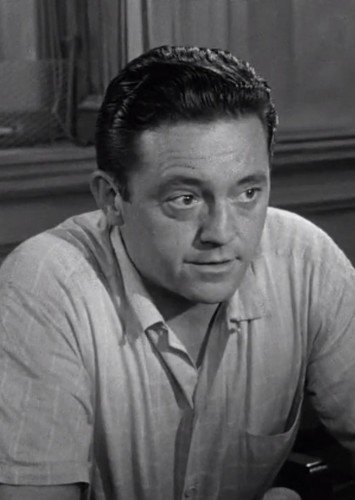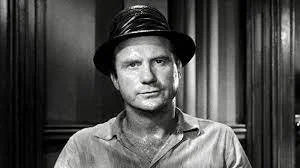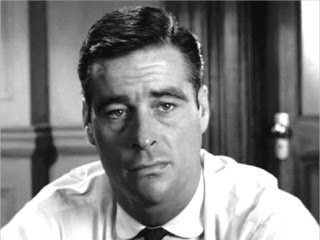This AFI list I’ve been covering is specifically looking at the greatest American films of all time. And because of that, many of the movies have been about America, either explicitly or at least thematically.
This is a wide subject, as you can say so many different things about the country (and many people do).
Whatever your thoughts are of the U.S., there are certain American ideals that I think most people can get on board with. This is one of the rarer films on the list, along with Mr. Smith Goes to Washington, that is about celebrating one of these ideals.
And because of this–because the film shines a light on an ideal that we all want realized, it has the power to make us feel good, to be optimistic, to want to be better citizens (of this country, or, if you don’t live in the U.S., whatever country you’re in) and perhaps the world.
This is a huge reason why this movie lands on so many people’s top 5 of all time. I mean, it’s on my list. I’m not saying you’re a monster if you don’t like it, but you know, you might want to check if your reflection shows up in the mirror.
I’m talking about, of course, the most uplifting film to ever have the word “angry” in the title, 1957’s 12 Angry Men, written by Reginald Rose and directed by Sidney Lumet.
The system
Ok, so I was being coy earlier when I kept talking about the American ideal, but I didn’t mention which ideal I was talking about.
Coyness over, the ideal that this movie promotes is a great legal system.
And I know this gets into a sticky subject, as some people believe the legal system is phenomenal, some believe it’s terrible, and others see how it’s more fair to some than it is to others. But however you feel about it, I think we can all agree that the United States at least tries to have an ideal legal system.
I mean four of the ten amendments in the Bill of Rights are all about a fair legal system and many of the others are about protecting your rights so you don’t have to get involved in the legal system in the first place.
The movie does have a bit of a cynical edge to it. The judge, who we only see at the beginning, looks bored, and the defendant’s lawyer clearly doesn’t do that good of a job. And if it weren’t for Juror 8, the jury wouldn’t have looked deeper into the case, and the kid would have been found guilty.
This clearly shows that without everyone doing their, the legal system can fail. The movie is much more about how to compensate for this (perhaps unavoidable) flaw and help uphold the ideal even when others aren’t.
This takes us to the movie’s real thesis statement: to have a great legal system, we need citizens who are interested in having a great legal system. I know this is a tough sale, as many of us would rather memorize the phone book than be selected for jury duty, but the movie does plainly point out that if we are selected for such a service, the best thing we can do is be the best citizen we can be.
Juror 8 is the epitome of this great citizen. He’s the one interested in justice and fairness and understanding all sides of the issue and not convicting if he has reasonable doubt. Alright, I’m getting all patriotic now, but he does really live up to not necessarily what an average American citizen is, but what an average American citizen should be.
He’s a person we can look up to and say, “if all jurors were like him, then the legal system would be working fairly.” Or closer to fairly at least.
Getting past bias
But here’s perhaps the most beautiful message is the follow-up message, which is “all citizens have it in them to become these great citizens–they just have to overcome what’s holding them back.”
Furthermore despite not knowing much about each juror (we only learn two of their names, and that’s at the very end of the movie), we can probably ascertain that their lives are better after this, not only because they came to a just verdict, but because they got rid of what was holding them back. This is a wonderful message because we all have things that are holding us back, and we can use that Juror 8 part of ourselves to get past it.
Because I’ve never seen anyone do this before, I’ll break down what each juror had holding him back and how he, with the help of Juror 8 and often others, got past it.
Juror 1
Juror 1’s main issue that he had to overcome was a burden of responsibility. As the foreman he often wrestled with this, getting caught up in his responsibility, even forgetting to count himself within a vote a couple times. He talks about a baseball game he had to coach, where he was devastated by the rain because it might mess up his responsibility as a coach. He gets butthurt when someone suggests he’s not doing a good job. Though we never get too much into his reasoning, this sense of responsibility likely makes him feel that he has some responsibility for convicting the defendant.
He’s one of the last men to change his mind, but he does so as the evidence starts really leaving room for doubt. It seems as though he widens his sense of responsibility from having to do a specific thing (be a good citizen and convict) to doing the best thing (be a good citizen and make the right choice).
Juror 2
Juror 2, aka Piglet’s, main issue is an overreliance on his instincts. He says at the beginning that he knows the defendant is guilty because he feels it. However, as Daniel Kahneman points out in Thinking Fast and Slow, relying too much on snap judgements can be detrimental, especially if we’re not experts in a subject, which Piglet is not here.
He realizes that his gut instinct might be wrong as he’s confronted with evidence. He likely learns that even though his instincts can be helpful, he still needs to be open-minded enough to think critically about a decision.
Juror 3
The biggest obstacle in the movie, Juror 3, as Juror 8 pointed out, is a sadist. He is angry at the world, and he wants to make others suffer because of that. We learn that he got this way because his son left him, and he’s essentially using the defendant as a proxy for him. Throughout the movie he keeps using other excuses for why they need to convict the defendant, meanwhile acting on anger and hatred.
The tearful climax at the end of the movie is him still struggling for any other excuse, but as he runs out, he finally breaks down and confronts what’s making him so hateful: his estrangement from his son. Only at that point, when he confronts this issue, is he able to let go of his sadism and say “not guilty.” Damn, that last monologue is good.
Juror 4
The main thing Juror 4 has to overcome is being too trusting of his own logic. I know this might sound weird, as logic is one of the best virtues we can have, but an issue with smart people is often they trust their own minds too much. This is often why very intelligent people can be susceptible to conspiracy theories–they see the things they find to be true and then trust their knowledge too much to be open to outside ideas. Juror 4 does exactly this. He lays out the reason he finds the defendant to be guilty, and then he sticks by the logic of the case, no matter how much counter evidence starts to be presented.
It’s when he’s faced with something from his personal life, the grooves he gets on his nose from his glasses, a detail he’s faced with all the time, that he’s able to see where he might have been wrong. He then realizes that there might be another explanation (the witness was vain instead of telling the truth). It’s at this point, that he’s finally open-minded enough to accept his thinking might have not been perfect, and he’s able to logically accept reasonable doubt.
Juror 5
Juror 5 is held back by his desire to hide his past. We learn that he was a slum kid. He relates to the defendant and is very sensitive about it; however, at the beginning of the movie, he doesn’t want people to know about it. He doesn’t share his reasons for voting “guilty,” he just quietly goes along with what the rest of the jury thinks.
As one of the first people to change his vote, it’s when he accepts himself for who he is and he’s alright with others knowing who he is that he’s willing to go against the crowd and show who he is. He is even able to use his experience from when he was a kid to demonstrate why the knife wound might have not come from the defendant.
Juror 6
Juror 6 is held back only by his interpretation of what he thinks the right thing is. He’s voting “guilty” at the beginning because he believes it’s the right thing to do. He later privately questions Juror 8 and asks him what happens if they vote for acquittal and the defendant is actually guilty. This is something to be pondered, but we don’t really return back to that question; however, it does reveal a lot about where Juror 6 is at.
We don’t learn exactly why he changed his mind, but I think it’s apparent that he has accepted nuance into his thinking about what’s right and what’s not. He has accepted that the defendant might, in fact, be guilty, that they might be setting a person free who shouldn’t be. But the defendant might also be innocent, and the risk of setting a guilty man free is one you have to take to avoid putting innocent people in jail and to uphold a great and fair legal system.
Juror 7
Juror 7 is held back by his own selfishness. He’s going with a guilty verdict because he thinks this is the decision that’s going to get him out the quickest and allow him to make the baseball game. He’s the comic relief, so we like him, but it’s clear that he doesn’t care about his responsibility as a juror at all.
When he switches his vote to not guilty, it’s once the tide is turning, and it looks like a “not guilty” vote will have the quickest end. Juror 11 confronts him on this, and Juror 7 finally says that he thinks he’s not guilty. Juror 11 looks skeptical at his answer, but the optimistic part of me wants to believe that at least a little piece of Juror 7 believes what he’s saying and cares whether or not he condemns an innocent man to die. Maybe.
Juror 8
Juror 8 is the catalyst of all of this. Right from the beginning he votes “not guilty,” not necessarily because he believes the defendant is not guilty but because, as he says several times, “it’s possible.” His obstacle is more external. Living in a world where others put their own personal issues above justices, he struggles to get the other jurors as interested in justice as he is.
Juror 9
Juror 9’s main issue that he has to overcome is self-doubt. He’s an old man who, at least at the beginning, doesn’t believe he’s important enough to be listened to (evidenced by how much he empathizes with the old, lonely witness). He seems as though he’s almost going to vote “not guilty” during the first vote but then changes his mind.
It’s when juror 8 proves to him that each individual can be listened to that he changes his vote. He’s the first one to do so, and it changes the momentum of the jury room. He later is emboldened enough to change Juror 4’s mind on the issue, and it’s he who gets to share the final moment of the movie in victory with Juror 8.
Juror 10
Juror 10’s issue, quite obviously, is his prejudice, always referring to the defendant as “those people.” Like so many of the worst people in history, his discrimination against a group of people causes him to make up his mind and be certain that the defendant is guilty.
It’s when he goes on a racist rant and the rest of the jurors turn their backs on him that he starts to realize his views will not be tolerated. And it’s when Juror 4 says to him, “don’t open your mouth again,” does Juror 10 shut up and quietly accept that he is on the wrong side of things.
Juror 11
Juror 11, a European immigrant who is now an American citizen, seems to want to be a good American (I’m basing this on the fact that he looks upset when his Americanness is called into question). Like with Juror 6, this seems to call into question what being a good American entails.
As the movie continues, and we learn the message of being a good American means upholding a great legal system, Juror 11 exemplifies this quality. He accepts that his room for doubt means he shouldn’t convict, and he even tries to hold others, like Juror 7, to these standards..
Juror 12
Juror 12 seems to be held back by confusion. As an ad executive, his mind seems to be perpetually captured by something else, even playing tic tac toe in the middle of the deliberation. He seems to be controlled by his mind, even going back and forth on his decision. He’s the only juror who goes back to a “guilty” vote after being bullied, only to go “not guilty” once more.
It seems that once the pressure is fully on and the tension is at a high that he’s able to be fully present enough to be the best juror he can be. You can see the distraction in him is gone at the end and he fully dives into the moment.
This lesson of each juror overcoming their personal obstacles and the entire jury making the correct decision is deeply inspiring.
It tells us that we don’t have to be held captive by the things that get us down. There is a way we can move forward.
When we make changes in our lives, we are faced with the same conundrum. We have the choice to convict ourselves guilty of whatever holds us back and live in the prison of it, or we can say “not guilty” and move past it. We can realize that we’re more than our flaws and get beyond them.
This could be part of the point of the last scene, when Juror 8 and Juror 9 give their names to each other. They’ve gotten past something and have fully realized their humanity. Well, that, and I think Reginald Rose was showing off that he made you care intensely about 12 people and probably didn’t even realize you didn’t know their names until then.
But, when it comes down to it, American ideals are about hope, optimism, opportunity, and ambition. These are wonderful ideals and ones we can reach when we don’t convict ourselves, and we get out of our own ways.
And in this spirit, this movie might be, in the ideal sense, the most American of them all.
Thanks for reading!
Check out our streaming service: https://www.cideshow.com/subscribe/















